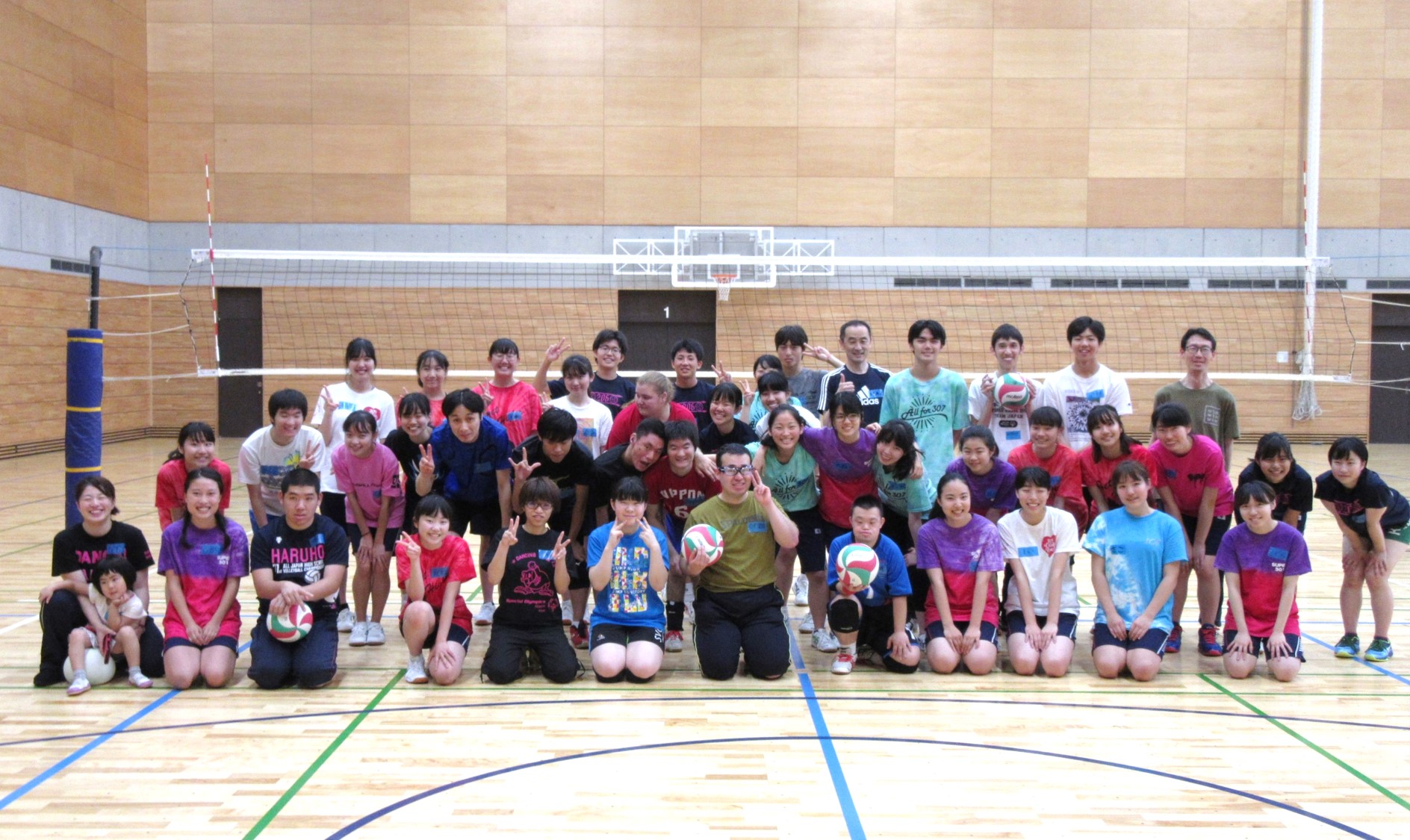
Day 5 and Day 6
This two-day session, organized in conjunction with the public-service corporation Special Olympics Nippon, provided the chance to deepen understanding of the disabled.
Day 5
(Special Olympics teach-in)
A chapel message reflecting on experiences with people with intellectual disabilities from a student who spent a year in America started this two-day session. This was followed by a lunch-time session with Special Olympics Nippon, a public-service corporation that internationally organizes sport events throughout the year to bring attention to intellectual disability. Staff from Special Olympics Nippon gave a lecture which prepared students for the following day’s Unified Sports event; they introduced effective communication strategies between those with and without disabilities, and helped students understand more about the different types of intellectual disabilities.
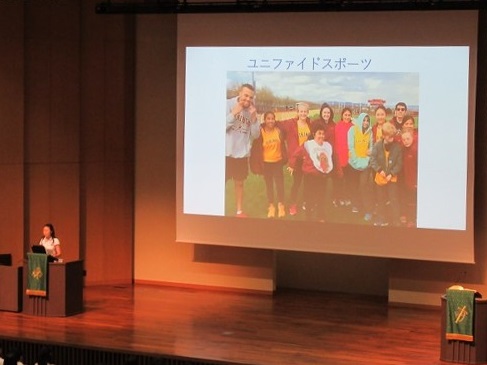
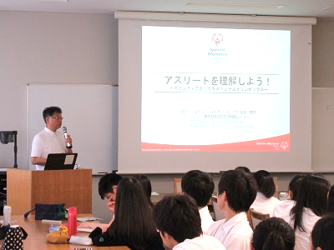
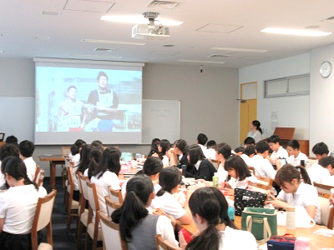
Day 6
(Unified Sports Volleyball)
11 athletes with intellectual disabilities, joined by guardians and Special Olympics Nippon staff, came to the high school on this day. 50 students formed different teams with the athletes for a passionately contested volleyball competition. There was valuable time after the competition for the athletes to speak and for students and athletes to learn more about each other.
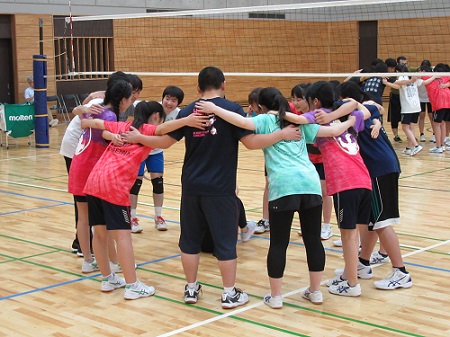
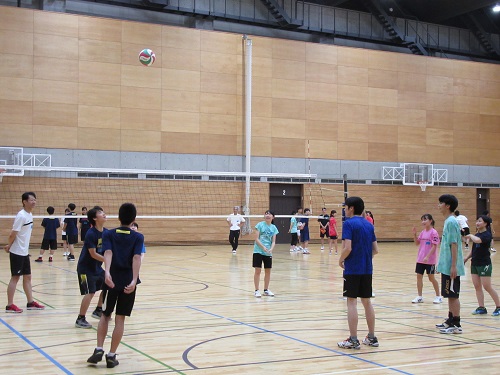
Selected student comments regarding the event:
As we spent more time with the athletes and they opened up more and more, they showed us how to properly warm-up, and encouraged us by high-fiving us throughout the matches.
I think we need to eliminate the term and the concept of “disability” from our thinking. Our desire to help each other should simply be the desire to help others, regardless of whether someone is disabled or not. Terming a person as “disabled” achieves nothing, and makes people appear different from each other, even though our thinking is essentially the same. We frequently see the term “barrier-free”, but is there a need to emphasize this? This concept of needing to overcome a hurdle just creates more hurdles, and institutions and social policies could achieve more without it.
In spite of learning in class about prejudices disabled people face, I have to admit that I unconsciously tried to avoid disabled people on the train and in other situations. The Unified Sports event helped me realize I was doing this, and helped me learn to view disabled people without prejudice. Without having more of these kinds of experiences, it’s hard for us to realize this. Problems in our world such as prejudice against disabled people, racial discrimination, and wealth discrepancy between rich and poor come from our drawing lines and putting ourselves on one side of the line. Having more chances, which allow understanding of people who experience prejudice will help society break down some of the barriers.
